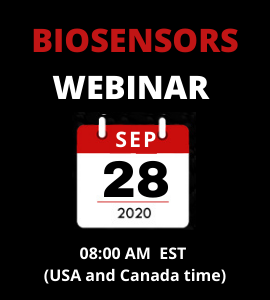
Biography
Biography: Rabia Asghar
Abstract
FRET-based sensors turn on /off on the target recognition is a rapid, sensitive and specific technique to detect different targets. Graphene and its composite for the quenching of fluorescent in FRET-based homogenous assays have been reported in many studies. Graphene/graphene composites are efficient energy transducers in FRET-based biosensors and repeatedly used in many studies up till now. In many fluorescent assays, these are used to quench the fluorescence of labelled single-stranded DNA when these labelled strands (DNA/RNA) are attached to the surface of quenchers. Upon getting high affinity and specific target the quenched labelled strands detached from the quencher to get bind to the relevant target. Here in this study, we labelled both ends of the aptamer with the fluorophores of two different wavelengths and observed under fluorescence microscope. To study quenching and restoration of fluorescence on a highly specific end of the aptamer. The whole study observed under the fluorescence microscope. Fluorescence –quenching – the restoration of fluorescence is followed by attachment of aptamer onto the quenchers surface and restoration of fluorescence when it detaches from rGO to attach with the target. Graphene oxide prepared by a hydrothermal process in our laboratory. To enhance energy transduction we reduced the graphene oxide surface. In this study, we proposed the binding of aptamer onto the surface of quencher is not all due to π-bond stacking but involved electrostatic attractions more dominantly. Reduced surface allows the restoration of fluorescence more efficiently. We used thrombin because of the high specification to its 15-mer DNA oligonucleotideMoreover, we also open the clinical aspects of such studies and their reliability to use these assays in clinical, industrial and laboratory applications.

